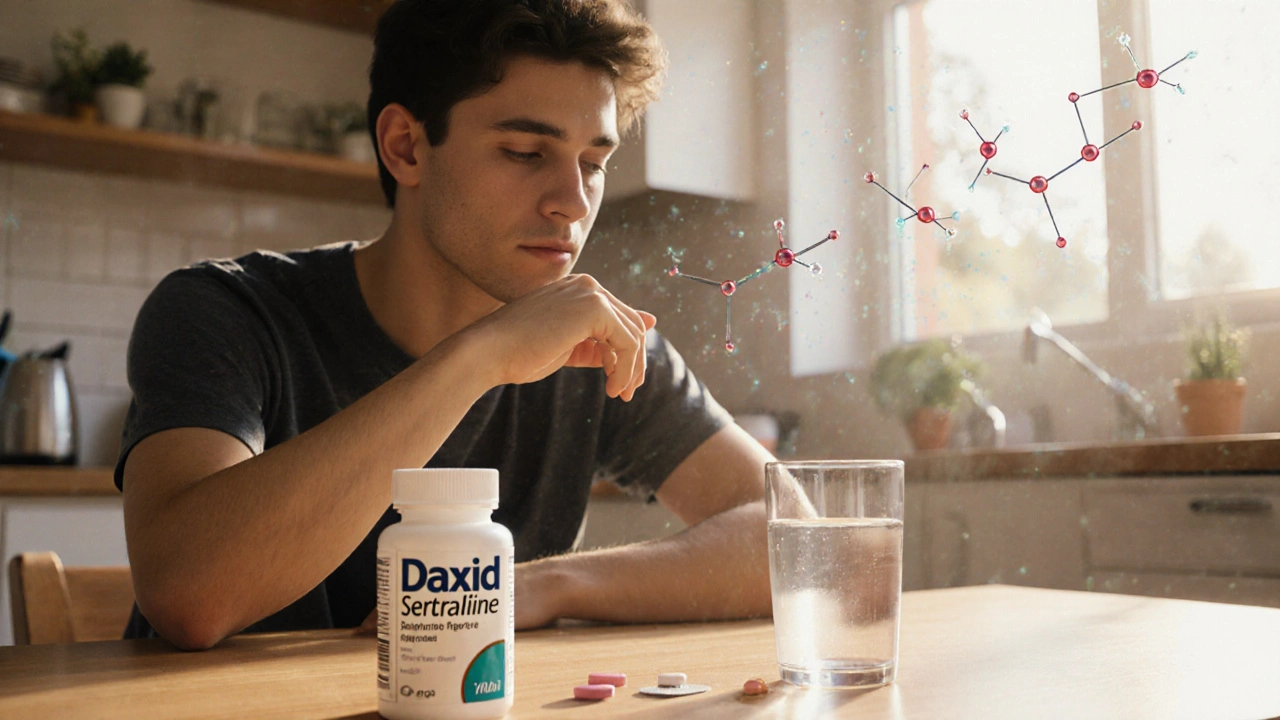Depression Medication: What It Is and How It Helps
When talking about Depression medication, any drug prescribed to alleviate depressive symptoms. Also known as antidepressants, it plays a crucial role in mental health management. Closely related are SSRIs, selective serotonin reuptake inhibitors that increase serotonin levels in the brain, SNRIs, serotonin‑noradrenaline reuptake inhibitors that boost both serotonin and norepinephrine, and TCAs, tricyclic antidepressants that affect multiple neurotransmitters. Together, these groups form the backbone of modern depression treatment.
How Depression Medication Works and Why It Matters
Depression medication encompasses a range of chemical strategies that target brain chemistry. SSRIs, for instance, block the reabsorption of serotonin, which raises the amount of this mood‑lifting neurotransmitter available for signaling. SNRIs add norepinephrine into the mix, often helping with energy and focus. TCAs work more broadly, affecting both serotonin and norepinephrine while also influencing histamine and acetylcholine pathways. This diversity means that a single diagnosis can be matched with several medication classes, allowing doctors to tailor therapy based on symptom profile, side‑effect tolerance, and medical history. Effective depression medication requires a proper diagnosis, correct dosing, and ongoing monitoring to balance benefits and risks.
Side effects influence patient adherence more than any other factor. Common SSRIs issues include nausea, headache, and sexual dysfunction; SNRIs may add increased blood pressure; TCAs can cause dry mouth, constipation, and sedation. Understanding these trade‑offs helps patients and clinicians choose a regimen that they can stick with long term. Real‑world data show that matching the right drug to the right person improves remission rates dramatically, turning a vague prescription into a concrete recovery plan.
Beyond the pills themselves, depression medication intersects with psychotherapy, lifestyle changes, and support networks. Studies repeatedly confirm that combining medication with cognitive‑behavioral therapy yields faster and more durable improvements. Nutrition, exercise, and sleep hygiene also modulate how well a drug works, because they affect the same neurotransmitter systems. In short, depression medication does not act in isolation—it is part of a broader treatment ecosystem that includes mental‑health professionals, family support, and daily habits.
When you browse the collection below, you’ll find detailed comparisons of specific drugs, cost‑saving tips for online purchases, and safety checklists for each medication class. Whether you’re looking for a quick rundown of SSRIs, a deep dive into the pros and cons of SNRIs, or practical guidance on buying generic versions safely, the articles ahead cover the full spectrum. Use this overview to orient yourself, then explore the individual posts for actionable insights and step‑by‑step advice.
Daxid (Sertraline) vs. Common Antidepressant Alternatives - In‑Depth Comparison
A detailed comparison of Daxid (sertraline) with common antidepressant alternatives, covering mechanisms, side effects, cost, and how to choose the right option.






